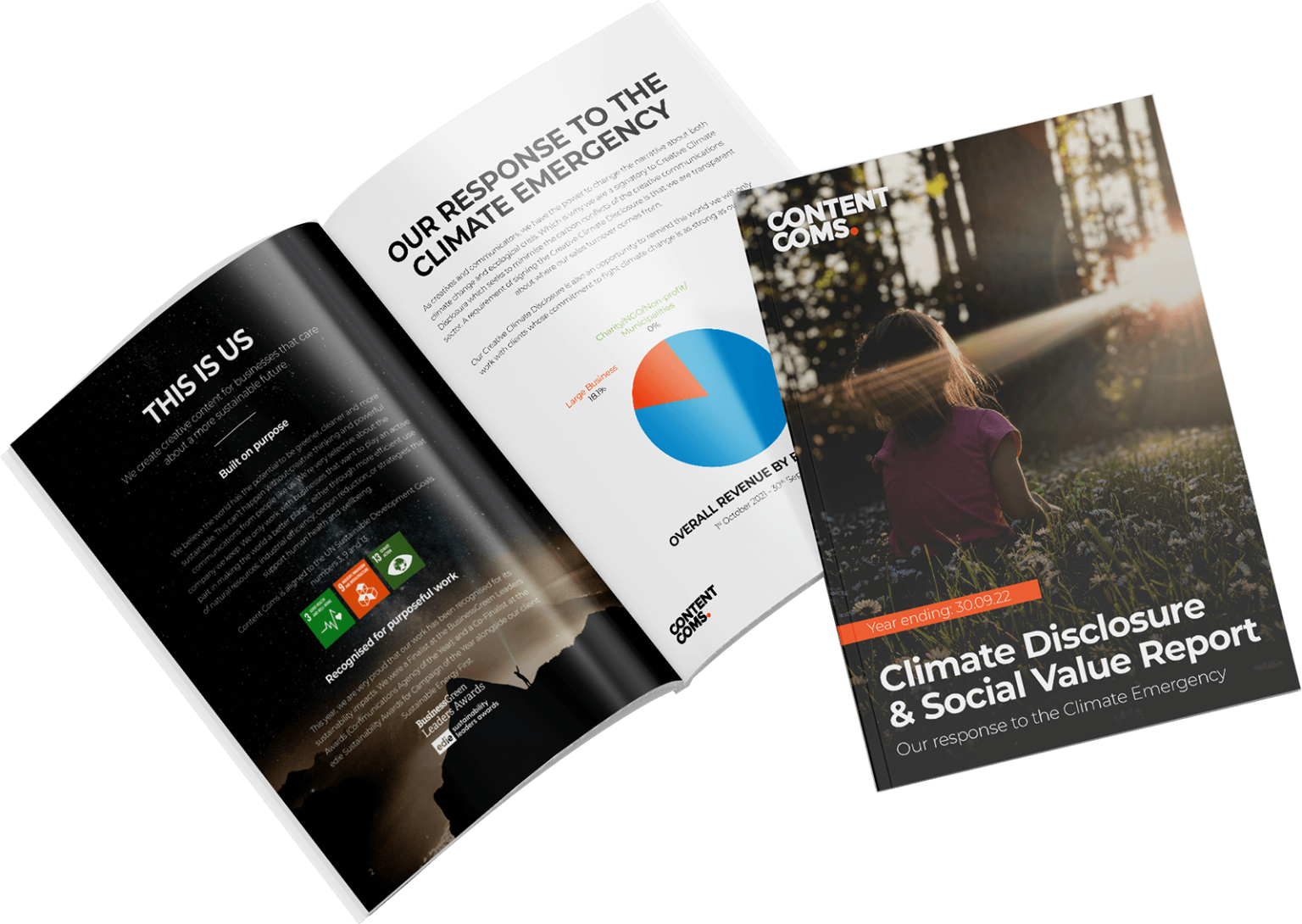
- By Sophie Crossley
- In Company
Our Creative Climate Disclosure & Social Value Report goes live – we calculate our contribution to society
It’s one thing to talk about making a change, and another act on it. At Content Coms we walk the walk as well as talk the talk. That’s why we’re proud to share our Creative Climate Disclosure & Social Value Report – which covers our last financial year (to ’22).
Content Coms (incorporating Work in Mind) first started to publish disclosure reports in 2019 as part of our sign-up to the Creative Climate Disclosure initiative.
Climate disclosure refers to the practice of companies and organizations disclosing information about their greenhouse gas emissions and related risks and opportunities. The most widely used framework for climate disclosure is the Task Force on Climate-related Financial Disclosures (TCFD). We see this as a key factor is progressing business transparency – our own, those we work with, and, hopefully, others in the industry.
Our impact
After gathering up a year’s worth of information, our report gives complete transparency on where our income comes from – and how we do business. Some of the highlighted statistics include:
- 81.7% – of our business comes from the energy & clean tech sectors
- 81.9% – of our work comes from SMEs
- 5.5% – of our net profits go to charity (⬆️ from 2%)
- 4% – of our total staff costs are attributable to social value / volunteering
The full details are contained in our e-book – Click to view our latest Creative Climate Disclosure Report.
Why report on climate disclosure and social value?
Reporting on climate disclosure and social values is important for a number of reasons:
- Transparency: Climate disclosure and reporting on social values helps promote transparency in a company’s operations. It allows stakeholders, including investors, employees, and customers, to gain a better understanding of a company’s environmental and social impact.
- Risk management: By reporting on climate and social values, companies can better manage the risks associated with climate change and social issues. Understanding and addressing these risks can help companies mitigate potential negative impacts on their business.
- Compliance: In some cases, reporting on climate and social values may be required by law or regulations. In these cases, failing to report could result in legal and financial penalties.
- Long-term sustainability: Addressing climate change and social issues is crucial for the long-term sustainability of a company’s operations. By reporting on these issues, companies can better understand their impact and take action to address them, which can lead to a more sustainable future.
- Reputation: Reporting on climate and social values can also help companies build a positive reputation. Companies that are seen as responsible and environmentally and socially conscious may be more attractive to customers, investors, and potential employees.
Overall, climate disclosure and social values are an increasingly vital tool for companies to manage climate-related risks and opportunities, build trust with stakeholders, and demonstrate their commitment to addressing climate change.
Plus, when you creatively display your report, it packs an extra punch.
Interested in creating a similar report for your organisation? Get in touch – we’d love to help.
